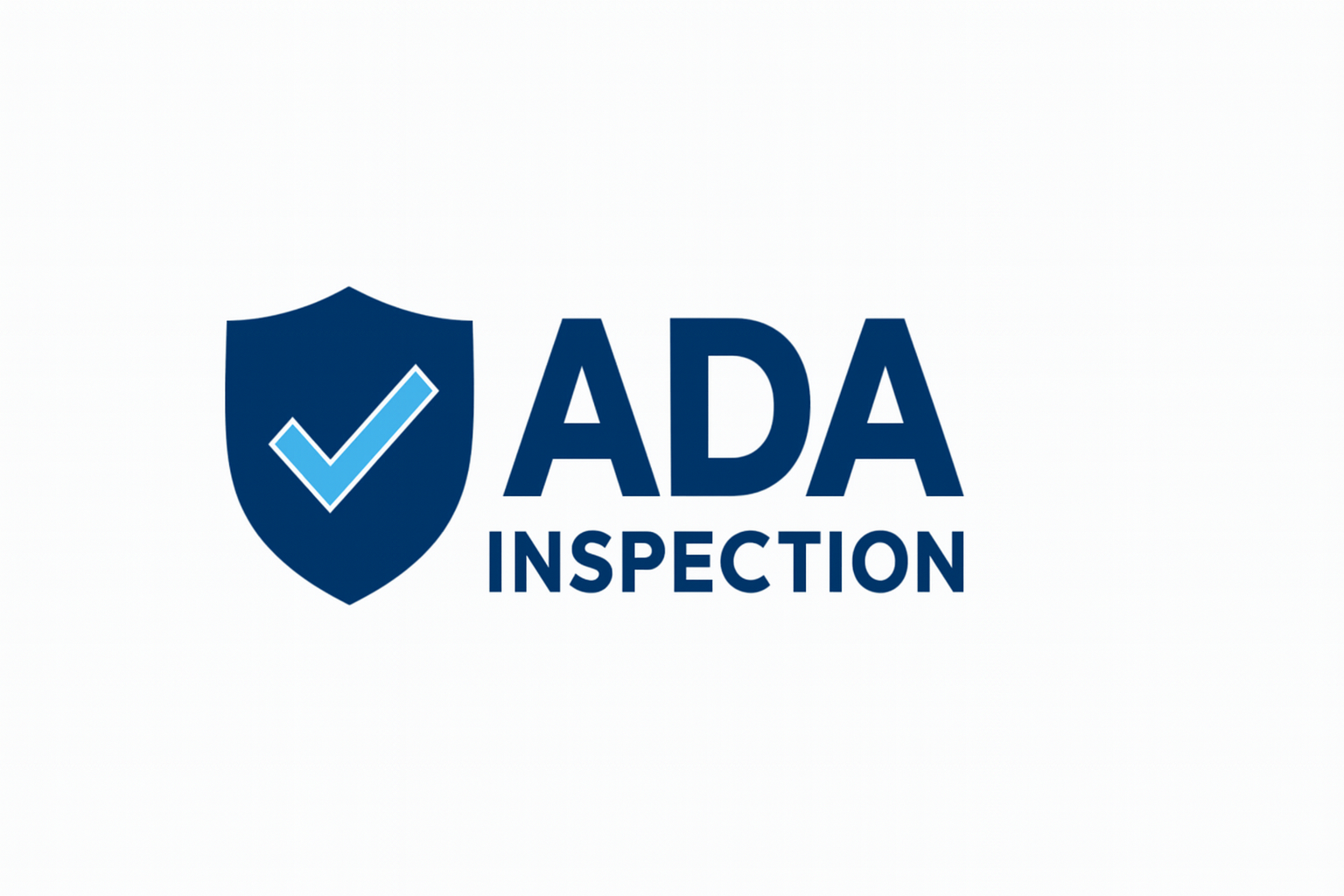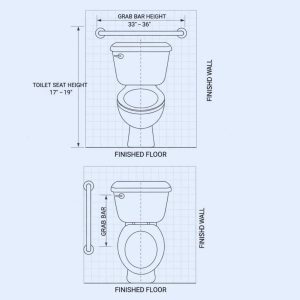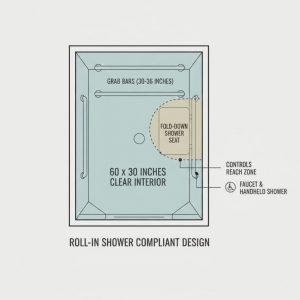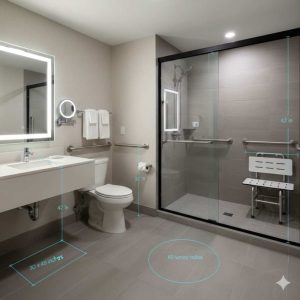Creating a business that’s accessible to everyone isn’t just the right thing to do it’s the law. In California, ADA compliance isn’t optional. From your building entrance to your restrooms, even a small oversight can lead to lawsuits, fines, or public backlash. This guide explains what California small business owners need to know about physical property accessibility and how to avoid legal risk while creating an inclusive space.
Why ADA Compliance Matters for California Small Businesses
What Is ADA Compliance?
ADA compliance means meeting the requirements of the Americans with Disabilities Act, which mandates equal access for people with disabilities. In California, these rules are reinforced by Title 24 of the state building code, which adds stricter guidelines.
What Happens If You're Not Compliant?
Noncompliance leads to real consequences. A proactive ADA compliance inspection in California can prevent minor oversights from becoming major legal or financial problems. Business owners face:
-
Lawsuits under federal and California disability laws
-
Fines and settlement costs
-
Reputational damage and lost tru
Do California Small Businesses Have to Follow ADA Laws?

Are You Required to Comply?
Yes. If your business is open to the public—like a restaurant, salon, gym, or clinic—you must meet ADA standards. There’s no exemption based on your revenue, number of employees, or building size.
Are There Exceptions?
In some cases. Older buildings may qualify for a limited exemption under the “readily achievable” standard, which allows flexibility based on financial or structural constraints. Still, businesses must show a good faith effort toward accessibility.
Common Accessibility Mistakes to Watch For
Let’s walk through the places where many businesses unknowingly fall short:
Ramps and Entrances
Even one small step without a compliant ramp creates a barrier. California’s Title 24 requires specific slope, width, and handrail guidelines. Portable ramps aren’t always a solution unless they meet these specs.
Doors and Handles
Doors must be easy to open. If you’re still using round knobs instead of lever-style handles, you’re likely out of compliance. Automatic doors or low-force openings are better for universal access.
Restrooms
Accessibility here means more than just space—it requires exact grab bar placement, fixture heights, and maneuvering room. Aesthetics don’t equal legal compliance.
Interior Navigation
Can someone using a wheelchair or walker move through your space without bumping into displays or tight corners? Are transitions between surfaces ramped or beveled? Is signage readable and visible from seated positions?
Parking Spaces
Accessible parking isn’t just paint and signage. The space must be level (under 2% slope), include an access aisle, and connect directly to your building entrance via a compliant path.
Why Federal ADA Isn’t Enough in California
California enforces stricter rules under Title 24, which add:
-
Narrower tolerances on ramp slopes and restrooms
-
Specific contrast and font size rules for signage
-
Additional measurement requirements for spacing and access
If you’ve used a federal checklist, you may still be missing items that California inspectors will flag.
How to Bring Your Business Up to Code
Start With a Self-Audit
Walk through your property as if you’re using a mobility aid or have low vision. Ask yourself:
-
Can I safely and comfortably enter and move through the space?
-
Are there physical or visual cues that guide me?
-
Is everything clearly labeled and reachable?
Schedule a CASp Inspection
Bringing in a Certified Access Specialist is one of the smartest steps you can take. A CASp inspection gives:
-
A prioritized list of what to fix
-
Legal protection if you’re sued (under SB 1608)
-
A clear plan to improve accessibility
Tackle High-Risk Areas First
Start with the features most likely to trigger complaints:
-
Entryways and restrooms
-
Customer seating and checkout counters
-
Designated accessible parking
These upgrades often cost less than assumed and dramatically reduce risk.
Common ADA Myths That Hurt Small Businesses
“I’m Too Small to Be Targeted”
Actually, smaller businesses are often targeted because they’re more likely to be noncompliant. Lawsuits aren’t just for big chains.
“It’s the Landlord’s Problem”
In California, both landlords and tenants can be held responsible. Your lease may pass on financial responsibility, but you still share legal liability.
“I’ll Just Fix It When I Get Sued”
Most legal complaints come without notice. Prevention costs far less than defense.
Accessibility Planning Tips for Restaurants
Restaurants often face unique ADA challenges. Here’s what to review:
-
One van-accessible parking space with a compliant sign and access aisle
-
Clear path from parking to entrance—no curbs, steps, or uneven surfaces
-
Adequate turning radius and aisle space in dining areas
-
Restrooms that meet grab bar, sink height, and door clearance rules
Need more help? Read our California restaurant parking checklist to avoid common violations.
Final Thoughts: Inclusion, Compliance, and Peace of Mind
Making your business ADA compliant is about more than avoiding fines—it’s about building trust and serving everyone in your community. With expert help, the path to compliance is easier than most owners realize. Start with awareness. Prioritize the most visible areas. And when you’re ready, bring in a CASp inspector to guide you.
Reliable Sources for Accessibility Guidance




